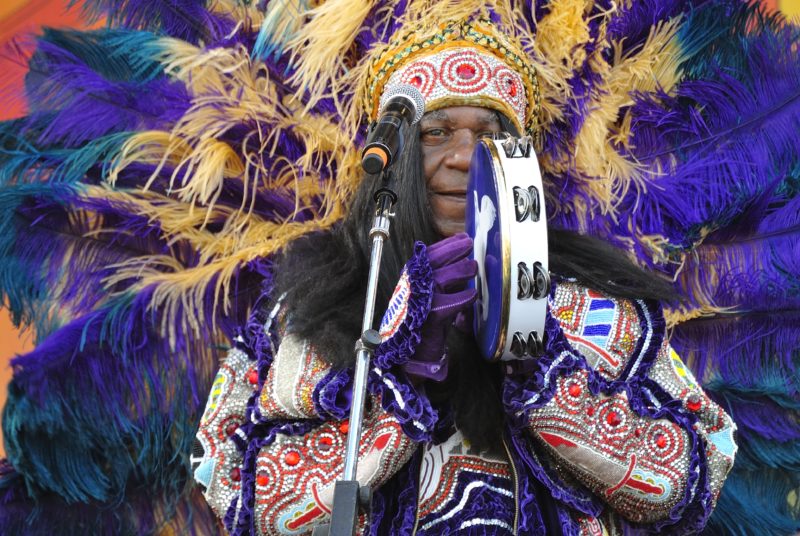To the city of New Orleans, jazz is more than an art form. To most, it is considered an expression of body, soul, and the representation of an entire culture’s perspective and struggle. Jazz has extensive roots in the region of New Orleans. Devised as a coping mechanism for many African Americans during a time where those of black decent were portrayed as outsiders, jazz is a kind of lyricism about the great American promise and our inability to live up to it (Gray, Wesley. “The Significance of Jazz (African Rhythms) In Our Community.” SIGNIFICANCE AND IMPORTANCE OF JAZZ MUSIC, IN THE AFRICAN AMERICAN COMMUNITY. 2011. Accessed November 05, 2012. http://www.drumsofchangedrumsofspirit.com/SIGNIFICANCE-AND-IMPORTANCE-OF-JAZZ-IMUSIC—IN-THE-AFRICAN-AMERICAN-COMMUNITY.html). The inhuman aberration of slavery is contained within jazz music. In other words, jazz is the symbolic record of our evolution as a people, which describes our society’s development from bondage to freedom. Thus, this particular musical creation has the potential, any time that it is heard, played, or talked about, to bring forth very intense reactions (Simpler, Kyle. “Hidden Meanings of Jazz.” All About Jazz. April 01, 2003. Accessed November 03, 2012. http://www.allaboutjazz.com/php/article.php?id=245). This musical appendage has a consulate of millions, who everyday express the emotions it embodies.
Jazz Fest

A Mardi Gras Indian performs at Jazz Fest. Photo by Takahiro Kyono. Reposted via Creative Commons permission.
In 1970, what is now known today as The New Orleans Jazz & Heritage Festival and Foundation was established in a collaborative effort with the newly created festival event, Jazz Fest, to exist as the event’s nonprofit owner. Jazz Fest is a collection of local performing artists and gaudy acts who have established a successful career in the music industry. These include Bruce Springsteen, Bon Jovi, Kings of Leon, etc. The festival has attracted hundreds of thousands of jazz enthusiasts yearly, pouring into the confines of the Fair Grounds Race Course. However, Jazz Fest hasn’t always attracted the massive amounts of people that annually flock to the event. The first New Orleans Jazz Festival and Louisiana Heritage Fair (1970) took place in Beauregard Square, on the site of what was Congo Square, where slaves in the 18th century were allowed to sing, dance, and play drums (The New Orleans Jazz & Heritage Festival and Foundation, Inc. “About Us.” The New Orleans Jazz & Heritage Festival and Foundation, Inc. 2009. Accessed November 05, 2012. http://www.jazzandheritage.org/about-us). The festival lost money, and continued to do so for the next two years until it was moved from this location to the Race Course. Currently the Festival is experiencing extreme success, and the Foundation overseeing its operations has utilized all revenue towards benefiting the community.
Concert Series
From the proceeds of Jazz Fest, The New Orleans Jazz & Heritage Festival Foundation has been able to extend its influence through the benefit of various related projects. Aside from planning Jazz Fest, the Foundation has committed itself yearly to coordinating the Concert Series. This series consists of Jazz Journey and Gospel Alive, both of which employee dozens of obscure jazz and gospel artists in venues to promote their longevity in the music industry (Sinclair, Lea. “New Orleans Jazz Journey.” New Orleans Tourism Marketing Corporation. Accessed October 30, 2012. http://www.neworleansonline.com/pr/releases/releases/New%20Orleans%20Jazz%20Journey%20Fest.pdf). The Foundation also holds an annual Gala prior to Jazz Fest to encourage the awareness of the cultural relevance jazz has to the city of New Orleans. To some, the influence of jazz on the city isn’t as evident as it may seem, so the Foundation tasks itself to highlight New Orleans’ musical treasures (Pareles, Jon. “From Shaky Start to Enduring Tradition.” LexisNexis Academic & Library Solutions, May 04, 2009. Accessed November 05, 2012. http://www.lexisnexis.com/hottopics/lnacademic/?verb=sr).
Local Artists

Festival Latina. Photo provided by the New Orleans Jazz and Heritage Foundation.
The economic impact the Foundation provides on a communal level is tremendous in terms of employing local artists. The Foundation’s goal is, “To promote, preserve, perpetuate and encourage the music, arts, culture and heritage of communities in Louisiana through festivals, programs and other cultural, educational, civic and economic activities”(Marshall, Don. “The New Orleans Jazz and Heritage Festival Foundation.” Telephone interview by author. October 23, 2012). As a result of this commitment, the Foundation has established a close relationship with the Sync Up Foundation. Sync Up connects independent musicians to festival producers and media music buyers throughout the world. It’s a series of conference sessions and networking events held during the New Orleans Jazz & Heritage Festival (Jazz & Heritage Talent Exchange. “About Us.” Jazz & Heritage Talent Exchange. 2008. Accessed November 05, 2012. http://www.jazzandheritage.org/about-us). To perpetuate the lasting relevance of jazz in the city of New Orleans, the Foundation ensures a helping hand exists for artists wanting to structure their career around jazz. That’s why the Foundation exists and will continue to reside alongside the form of expression so important to this city.






